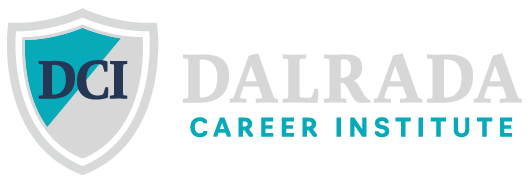As a nursing student, you carry a certain responsibility: to comprehensively understand patient care before your start your professional career. While passing each of the challenging tests within the LVN or MA exams is mandatory in order to begin practicing, specific exams like the NCLEX-PN are notoriously difficult. However, you can pave your way to success with consistent preparation rooted in smart study techniques.
A Strategic Approach
Implementing small, smart, and daily study habits makes a world of difference compared to last-minute cramming. Rather than cramming and forgetting what you’ve learned, it’s crucial that you take a slow approach to solidify and retain your learnings so that you’re truly prepared once it’s time to work.
With a strategic type of approach that includes the study tips below, you’ll be able to take your exams with confidence!
Create a Realistic Weekly Study Plan
Start by outlining a study plan for your medical assistant or LVN exam that fits into your existing scheduling constraints—classes, commutes, childcare duties, or a part-time job, for example. It can be difficult to balance daily life with studying, but setting time aside will help you stay on schedule without burning out.
Time Blocking
If you can, try to dedicate at least 30-60 minutes daily for intentional review time and block off more availability as you inch closer to your test date. Consider posting your schedule visibly too, such as on your refrigerator, or set an alarm for study time. This way, you can stay accountable.
Study Schedules
Print out your semester syllabus and write prep activities into each day and week, and allot specific topics per time slot. Mondays can cover pharmacology principles, for example, while Wednesdays tackle anatomy flashcards. You can always refer back to the schedule and make some changes if you feel distracted or aimless while studying.
Prioritizing Tasks
You may want to consider prioritizing your tasks by labeling them A, B, or C status. “A” items call for your fullest mental acuity, like memorizing medication contraindications or percent-to-gram conversions. “A” priorities should be scheduled during peak productivity hours when your retention abilities are sharpest, which is typically mid-morning.
Tackle Tough Topics First
When you sit down to study, do you find yourself defaulting to familiar subject matter? It’s a common instinct, but it’s also important that you overcome that urge.
Instead, try to focus first on more difficult nursing areas like cardiac rhythms, or ventilator settings. Start a study session by listing three or four hard topics, and consider crafting mini lesson plans for each to keep you on track.
You only have so much brain power to give, which is why it’s suggested that you devote that energy to complex concepts right away. Once the biggest challenges are reviewed, other topics will feel more manageable.
If those difficult topics are proving troublesome, consider coming up with acronyms or rhymes to ingrain that knowledge. Also, mnemonics and acronyms are proven techniques for memory retention, and will come in handy come exam time.
Handwrite Notes from Memory
Lastly, rather than taking to your laptop for notes and outlines, write it all down instead.
It may take longer, but writing your notes by hand has shown clear effects on memory recall. This is because the physical motions of handwriting can boost factual absorption and recall speed rather than typing.
After reading a textbook chapter or finishing a video lecture, look away and write down as many key points from memory as possible. Then, refer back to fill knowledge gaps and write down unfamiliar terms over and over again to imprint those definitions.
Many students even use different colored pens to capture key words. This color-coding system helps the eye easily spot meaningful vocabulary, further cementing that knowledge in your long-term memory.
Step into Your MA or LVN Exam with Confidence!
Implementing these small-yet-strategic nursing school study tips will make a world of difference come time to take your MA or licensed vocational nurse exam, especially when compared to cramming—which isn’t effective for long-term memory recall.
By creating a realistic weekly study plan, tackling the tough topics first, and handwriting your notes, you can walk into your NCLEX-PN or MA exam with confidence. Most importantly, you’ll be comprehensively prepared to begin caring for patients, and grow into the nurse or medical assistant you dream of becoming.
Are you searching for a program that fits your needs, goals, and budget? Dalrada Career Institute offers a one-year, full-time LVN program that prepares future nurses for direct patient care in numerous healthcare settings, with financial aid and work scholarships available. Also available is our fast track accelerated 10-week MA program.
Learn more about DCI’s LVN Program in San Diego or our MA program in San Diego, and contact us for more information.


